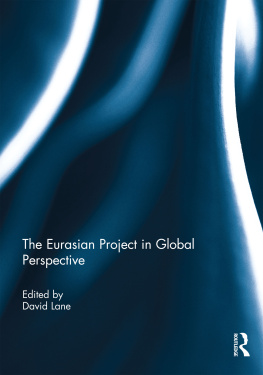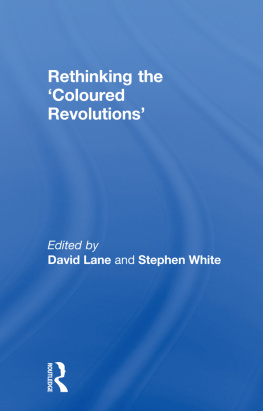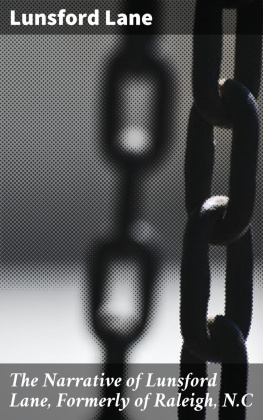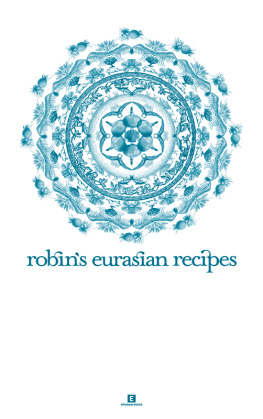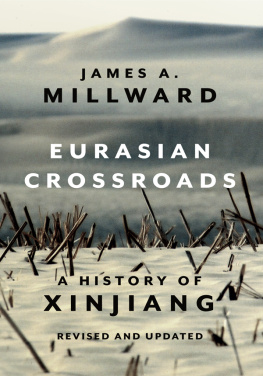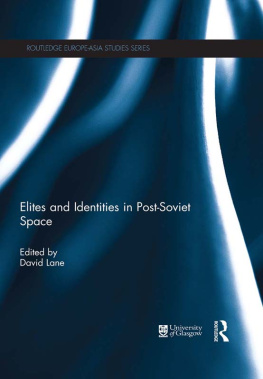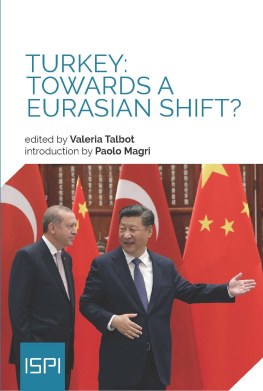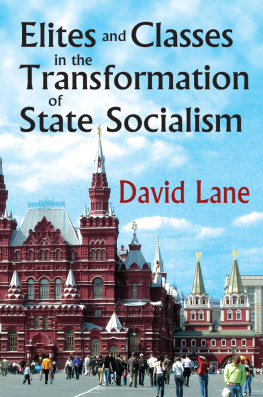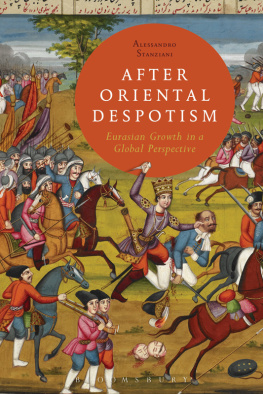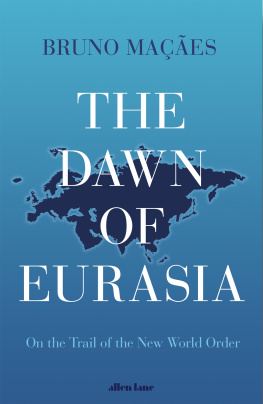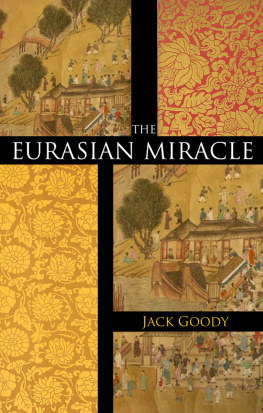The Eurasian Project in Global Perspective
Regional associations have become major players in international politics and economics. The Eurasian Economic Union (EEU), composed of Russia, Kazakhstan, Belarus, Armenia and Kyrgyzstan, is considered as a player which will strengthen the international influence and international trade of the post-socialist countries. It is intended to become a parallel association to the European Union.
This comprehensive volume considers the potential global role of the EEU. A major problem outlined is the balancing of relations between the EU and the West on the one hand, and China and the Shanghai Cooperation Organisation on the other. The book explores the impact of the global crisis as well as a consideration of the EEU in the world system of states. It also examines the EEUs relationship with other regional developments, in relation to the EU and to the outer circle of post-socialist states that joined neither the EU nor the EEU. It concludes by considering Eurasia in the Asian context, looking at the two central Asian countries (Kazakhstan and Kyrgyzstan), relations with China and the relationship between the Shanghai Cooperation Organisation (SCO) and the EEU.
This book was originally published as a special issue of European Politics and Society.
David Lane is an Emeritus Fellow of Emmanuel College, Cambridge University, UK, and previously was Professor of Sociology at the University of Birmingham. He is a Fellow of the Academy of Social Sciences.
The Eurasian Project in
Global Perspective
Edited by
David Lane
First published 2018
by Routledge
2 Park Square, Milton Park, Abingdon, Oxon, OX14 4RN, UK
and by Routledge
711 Third Avenue, New York, NY 10017, USA
Routledge is an imprint of the Taylor & Francis Group, an informa business
2018 Taylor & Francis
All rights reserved. No part of this book may be reprinted or reproduced or utilised in any form or by any electronic, mechanical, or other means, now known or hereafter invented, including photocopying and recording, or in any information storage or retrieval system, without permission in writing from the publishers.
Trademark notice: Product or corporate names may be trademarks or registered trademarks, and are used only for identification and explanation without intent to infringe.
British Library Cataloguing in Publication Data
A catalogue record for this book is available from the British Library
ISBN 13: 978-1-138-29222-2
Typeset in Myriad Pro
by RefineCatch Limited, Bungay, Suffolk
Publishers Note
The publisher accepts responsibility for any inconsistencies that may have arisen during the conversion of this book from journal articles to book chapters, namely the possible inclusion of journal terminology.
Disclaimer
Every effort has been made to contact copyright holders for their permission to reprint material in this book. The publishers would be grateful to hear from any copyright holder who is not here acknowledged and will undertake to rectify any errors or omissions in future editions of this book.
Contents
Citation Information
The chapters in this book were originally published in European Politics and Society, volume 17, S1 (2016). When citing this material, please use the original page numbering for each article, as follows:
Preface
Preface
David Lane
European Politics and Society, volume 17, S1 (2016), pp. 13
Chapter 1
How the Eurasian elites envisage the role of the EEU in global perspective
Richard Sakwa
European Politics and Society, volume 17, S1 (2016), pp. 422
Chapter 2
The global crisis and its impact on the Eurasian Economic Union
Ruslan Dzarasov
European Politics and Society, volume 17, S1 (2016), pp. 2334
Chapter 3
The Eurasian Union and global value chains
Elena Ustyuzhanina
European Politics and Society, volume 17, S1 (2016), pp. 3545
Chapter 4
Post-socialist regions in the world system
David Lane
European Politics and Society, volume 17, S1 (2016), pp. 4666
Chapter 5
Eastern partnership and the Eurasian Union: bringing the political back in the eastern region
Elena A. Korosteleva
European Politics and Society, volume 17, S1 (2016), pp. 6781
Chapter 6
The new Eurasia: post-Soviet space between Russia, Europe and China
Vsevolod Samokhvalov
European Politics and Society, volume 17, S1 (2016), pp. 8296
Chapter 7
Eurasian Economic Union integration in Kazakhstan and Kyrgyzstan
Diana T. Kudaibergenova
European Politics and Society, volume 17, S1 (2016), pp. 97112
Chapter 8
The Eurasian Economic Union and Chinas silk road: implications for the RussianChinese relationship
Jeanne L. Wilson
European Politics and Society, volume 17, S1 (2016), pp. 113132
Chapter 9
Eurasian encounters: the Eurasian Economic Union and the Shanghai Cooperation Organisation
Ivaylo Gatev and Glenn Diesen
European Politics and Society, volume 17, S1 (2016), pp. 133150
For any permission-related enquiries please visit:
http://www.tandfonline.com/page/help/permissions
Notes on Contributors
Glenn Diesen is a Scholarly Teaching Fellow at the Department of Security Studies and Criminology, Macquarie University, Australia.
Ruslan Dzarasov is Head of the Department of Political Economy, Plekhanov Russian University of Economics, Moscow, Russia.
Ivaylo Gatev is Assistant Professor in European Politics at the School of International Studies, University of Nottingham Ningbo China, Ningbo, Peoples Republic of China.
Elena A. Korosteleva is Professor of International Politics, Director of Internalisation Jean Monnet Chair in European Politics and Director of the Global Europe Centre (Professional Studies) at the School of Politics and International Relations, Rutherford College, University of Kent, Canterbury, UK.
Diana T. Kudaibergenova is a PhD candidate at the Department of Sociology, University of Cambridge, UK.
David Lane is an Emeritus Fellow of Emmanuel College, Cambridge University, UK, and previously was Professor of Sociology at the University of Birmingham. He is a Fellow of the Academy of Social Sciences.
Richard Sakwa is Professor of Russian and European Politics, School of Politics and International Relations, University of Kent, UK.
Vsevolod Samokhvalov is based at the Department of Politics and International Studies, University of Cambridge, UK.
Elena Ustyuzhanina is based at the Department of Economics, Plekhanov Russian University of Economics, Moscow, Russia.
Jeanne L. Wilson is Shelby Cullom Davis Professor of Russian Studies and International Relations Coordinator at the Department of Political Science, Wheaton College, USA.
Preface
The papers in this collection examine the manifold international dimensions confronting the Eurasian Economic Union (EEU). Following the disintegration of the political association of the Warsaw Pact and the economic area of Council for Mutual Economic Assistance, the post-socialist societies were absorbed initially in defining their individual identities as independent states. The new international architecture which surrounded them, however, consisted of regional associations, particularly the European Community which later became the European Union. (This association of states is referred to here as the EU, despite differences in nomenclature). The responses of the post-socialist states have been predicated on forming or joining regional associations which were believed to enhance their political security and economic well-being. Two major regional developments occurred soon after the dissolution of the socialist bloc: the movement of the central European post-socialist states into the European Union (EU) and the formation of the Commonwealth of Independent States (CIS) which encompassed the former states of the Union of Soviet Socialist Republics (excluding the former Baltic Republics). The twenty-first century has witnessed the inclusion of the former central European post-socialist states into what is now a twenty-eight country strong European Union whereas the CIS fragmented and became a very loose association of states.


